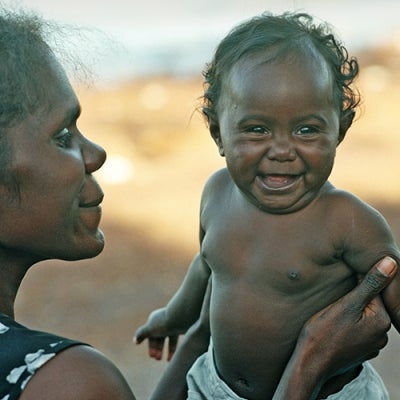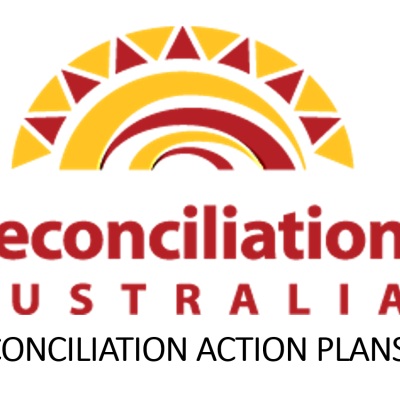Refine results
-
Aboriginal and Torres Strait Islander Social Justice14 December 2012Project

Close the Gap: Indigenous Health Campaign
Working together to achieve health and life expectation equality for Australia's Aboriginal and Torres Strait Islander peoples. -
Aboriginal and Torres Strait Islander Social Justice26 October 2017Speech
Rural and Remote Mental Health Conference 2017
A speech by June Oscar about her work at the Australian Human Rights Commission, the importance of language and culture to our social and emotional well-being, and the role of our women in leading us to a better future. -
14 April 2015Book page
6 Giving effect to the Declaration
6.1 Introduction 6.2 Steps taken by the Australian Government to implement the Declaration 6.3 Giving effect to the Declaration 6.4 Conclusion and recommendations 6.1 Introduction Throughout my term, I have continually emphasised the importance of the United Nations Declaration on the Rights of Indigenous Peoples [565] (the Declaration). The Declaration is the most comprehensive and advanced… -
14 December 2012Book page
Social Justice Report 2005 : Appendix 1 : Chronology of events relating to the new arrangements for the administration of Indigenous affairs, 1 July 2004 - 30 June 2005
This Appendix provides an overview of main events since the introduction of the new arrangements for the administration of Indigenous affairs on 1 July 2004. It commences with a summary table and is followed by a detailed description of each event. -
Aboriginal and Torres Strait Islander Social Justice9 April 2013Project

Reconciliation Action Plan 2012
Reconciliation is important to the Australian Human Rights Commission. First it enables us to build the cultural diversity of our organisation so we are better placed to empower Aboriginal and Torres Strait Islander peoples to understand and exercise their human rights; secondly as it is appropriate for us to model the importance of understanding and respect for the rights of Aboriginal and… -
Legal14 December 2012Webpage
Independent Interim Report on CEDAW
Para 29: The Committee encourages the State party to continue its efforts to tackle the persistent problem of violence against women and urges the State party to adopt national legislation and adopt, implement and adequately fund as a matter of urgency the National Action Plan to Reduce Violence against Women and Their Children, including a mechanism for independent monitoring. -
14 December 2012Book page
Social Justice Report 2007 - Chapter 2: Indigenous communities dealing with family violence and abuse
Family violence and abuse occurs at unacceptable rates in Aboriginal and Torres Strait Islander (Indigenous) communities. We have heard many tragic stories of women, children and young people who have experienced devastating sexual abuse and family violence. It is a scourge that is causing damage and trauma among Indigenous communities, to our women and children, and to the fabric of Indigenous… -
14 December 2012Book page
Social Justice Report 2003: Chapter 3: Indigenous participation in decision making – Transforming the relationship between government and Indigenous peoples
The twin pillars of the government's approach to Indigenous policy in 2003 continued to be practical reconciliation, with its emphasis on service delivery in core areas of disadvantage, and mutual obligation, with its emphasis on reciprocity and individual responsibility. Through both of these policies, the government has identified moving Indigenous people beyond welfare dependency and enabling… -
14 April 2015Book page
4 Creating safe communities
4.1 Introduction 4.2 Justice reinvestment in Australia five years on 4.3 Justice targets 4.4 National Justice Coalition 4.5 Conclusion and recommendations 4.1 Introduction The overrepresentation of Aboriginal and Torres Strait Islander peoples as both victims and offenders in the criminal justice system remains one of the most glaring disparities between Aboriginal and Torres Strait Islander… -
14 December 2012Book page
Social Justice Report 2006: Chapter 3: Addressing the fundamental flaw of the new arrangements for Indigenous affairs – the absence of principled engagement with Indigenous peoples
This is the third successive Social Justice Report to report on the implementation of the new arrangements for Indigenous affairs at the federal government level. The past two Social Justice Reports have emphasised the importance of governments ensuring the effective participation of Indigenous peoples in decision making that affects our lives. This includes the development of policy, program… -
Legal14 December 2012Webpage
Access and Equity: Inquiry into the responsiveness of Australian Government services to Australia’s culturally and linguistically diverse population
The Australian Human Rights Commission makes this submission to the Access and Equity Inquiry Panel in its inquiry into the responsiveness of Australian Government services to Australia’s culturally and linguistically diverse population. -
Commission – General14 December 2012Speech
President speeches: Protecting the human rights of Indigenous people and communities
I would like to acknowledge the Kaurna peoples, the traditional owners of the land on which we meet today, and pay my respects to their elders past and present. -
Legal10 October 2017Submission
Information concerning Australia’s compliance with the International Covenant on Civil and Political Rights (2017)
This submission provides information concerning the civil and political rights of key population groups in Australia and other thematic issues engaging civil and political rights. In relation to each section, the Commission has referred to the relevant articles of the ICCPR engaged and (where appropriate) the relevant paragraph of the Committee’s list of issues prior to reporting dated 9 November… -
14 December 2012Book page
Native Title Report 2006: Chapter 4: South Australia’s State-Wide Indigenous Land Use Agreement (ILUA) Framework
In most states and territories of Australia, Indigenous Land Use Agreements (ILUAs) are negotiated on a case by case basis between the relevant parties, usually traditional owners, governments and industry groups. South Australia however, has taken a more comprehensive approach to these agreements. The South Australian Government, Indigenous traditional land owners and industry stakeholders have… -
14 December 2012Book page
Native Title Report 2003 : Chapter 2 : Native Title Policy - State and Commonwealth profiles
Human rights principles require that Indigenous people's relationships to land, based on traditional laws and customs, be given legal recognition and protection. International legal principles also recognise that Indigenous peoples have economic, social and cultural human rights. Native title, as it is constructed through the Australian legal system, has a limited capacity to meet these human… -
27 November 2015Book page
The need for better engagement - Year in review
1.1 Introduction In last year’s Social Justice and Native Title Report, I raised concerns about the changes resulting from the 2014-15 Budget and the restructure to Indigenous Affairs through the Indigenous Advancement Strategy (IAS). Despite initial concerns about how these changes would impact our communities, I indicated that the streamlining of programs and the move away from a ‘one size… -
3 January 2014Book page
2 Background and framework for promotion and protection of human rights
2.1 Scope of international obligations During Australia’s review, the Government made a commitment to improving Australia’s monitoring of its international human rights obligations. Australia is a party to seven of the core human rights treaties and maintains a number of reservations under these. The Australian Government made a commitment to conduct a comprehensive review of such… -
Sex Discrimination14 December 2012Publication
Report: Visit of the UN Special Rapporteur on violence against women
In April 2012, the current UN Special Rapporteur on violence against women, including its causes and consequences, Ms Rashida Manjoo, accepted an invitation to conduct a study tour to Australia. This was the first visit to Australia ever undertaken by the UN Special Rapporteur on violence against women -
14 December 2012Book page
Bringing them Home - Chapter 19
In most cases of forcible removal government officials and agents were responsible for the removal under legislation or regulations. However, there were early cases of removal of children by missionaries without the consent of the parents. In Victoria the absence of government oversight of welfare services enabled churches and other non-government agencies to remove children from their families… -
Aboriginal and Torres Strait Islander Social Justice14 December 2012Publication
Submission: Human rights and fundamental freedoms of Indigenous people
The Australian Human Rights and Commission has made a submission on behalf of the Indigenous Peoples Organisation Network (IPON) of Australia to Professor S. James Anaya, UN Special Rapporteur on the human rights and fundamental freedoms of Indigenous Peoples, on the current status of Indigenous human rights in Australia for his Mission to Australia which is taking place from 17-28 August 2009.
